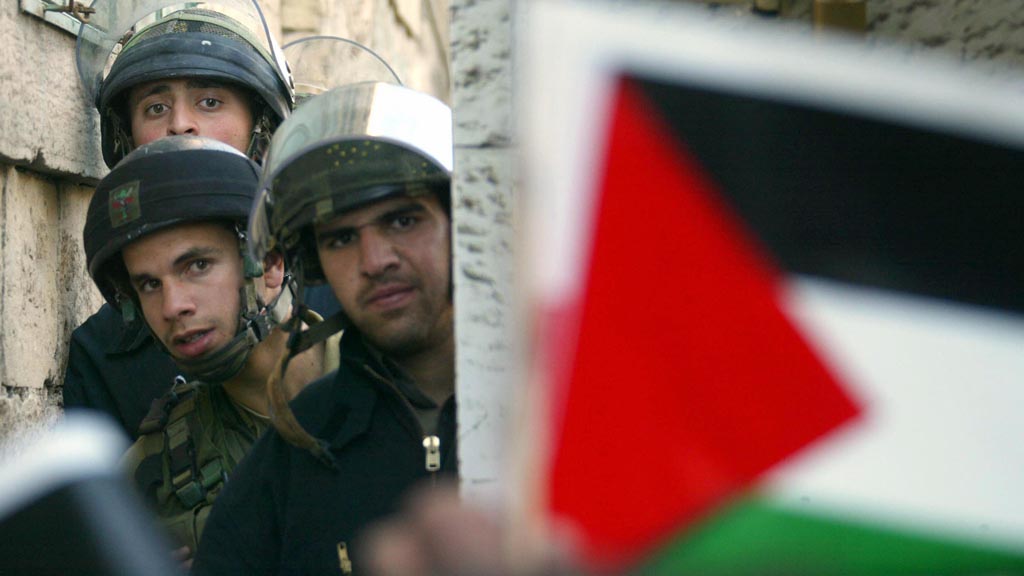Palestinian recognition: the key questions
The Palestinian Authority is bidding for “non-member state” recognition by the United Nations. Will it succeed after last year’s failed push for full recognition? And what are the likely consequences?

What is the background?
Geography is central to the dispute between Israel and the Palestinian Arabs. The physical evolution of the state of Israel and of the occupied territories has been determined by major conflicts, in 1948, 1956, 1967 and 1973.
Present-day Israel’s boundaries were largely shaped by the 1967 Six-Day War, when Israel seized the West Bank from Jordan, the Gaza Strip from Egypt, and the Golan Heights from Syria
Now, 65 years on from a landmark United Nations vote for a partitioned Palestine, Palestinians – who opposed the 1947 vote – have proposed a UN resolution that implicitly endorses partition.
The Palestinian Authority – which governs the West Bank but not, since 2006, the Gaza Strip – wants the general assembly to vote to change its UN observer status from “entity” to “non-member state”.
Will the vote mean full recognition?
No. In September 2011 Palestinian Authority President Mahmoud Abbas applied for full United Nations membership based on pre-1967 frontiers, but the security council failed to achieve unanimity in favour of the bid.
This year’s vote falls short of granting full membership. But a decision to admit the Palestinian Authority as a non-member observer state – a status currently enjoyed by the Vatican – would allow the Palestinians access to international bodies such as the international criminal court, where they might be able to bring cases against Israel.
Israel has dismissed the prospect of non-member observer status as merely symbolic. A Foreign Ministry spokesman said: “It may give them (the Palestinians) some procedural advantages… but that’s it. It does not change the status of the territory.”
Read Jon Snow's blog: Sitting on our hands over Palestinian UN bid?
Who is in favour? Who is against?
The consensus is that the 2012 resolution will be comfortably passed. Israeli government spokesman Mark Regev has noted: “We always said that the reality was that the Palestinians have an automatic majority in the general assembly.”
Israel will vote against, as will the United States, its strongest ally. Germany has said it cannot support the Palestinian resolution, leaving open the question of whether or not it will abstain.
The United Kingdom could also abstain, having indicated it would consider voting for the resolution, provided the Palestinians commit to resume negotiations with Israel, without preconditions, and offer assurances they will not pursue Israel at the international criminal court.
Elsewhere, the Palestinian bid has strong support from the developing world, as well from a majority of western European nations. Palestinian Liberation Organisation official Hanan Ashrawi says the positive responses from European states have sent a message of hope to all Palestinians.
Has the Arab Spring affected the situation?
Not directly. The political landscape in the Middle East has been transformed by events there since the start of 2011. But one surprising aspect of the Arab Spring upheavals is that they failed to ignite significant popular unrest within the Palestinian territories.
Channel 4 News Diplomatic Correspondent Jonathan Rugman believes nonetheless that the popular protests which swept the Arab world may have inspired Palestinians to explore new avenues for obtaining their cherished dream of statehood.
“I think it’s fair to say the Palestinians feared that, with the Arab Spring, they would be left out. The irony would be that their struggle predates the battles for freedom in Tunisia, Libya and Egypt last year, and they don’t want to be forgotten or excluded from that mix,” he says.
What are the consequences of the vote?
US Secretary of State Hillary Clinton has warned that the Palestinian move is misguided and wants a renewed focus on reviving the Middle East peace process.
“The path to a two-state solution that fulfils the aspirations of the Palestinian people is through Jerusalem and Ramallah, not New York,” she said. “The only way to get a lasting solution is to commence direct negotiations.”
The US has also hinted that a successful UN vote could produce a reduction in its economic support for the Palestinians.
Israel has suggested it could take significant deductions from monthly transfers of duties that Israel collects on the Palestinians’ behalf. When last year the Palestinian Authority secured membership of Unesco (United Nations Educational, Scientific and Cultural Organisation), Israel responded by withholding millions of dollars in tax transfers.




